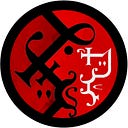Khepri, the agents of Destiny.
Khepri are a mysterious race of humanoids that have scarabs for faces. They live in one of the dioceses of the Angelic Unison, on the south, near the Symmetry Gardens.
Khepri bizarre anatomy is seen as proof of a direct connection to the Demiurge: there must have been a special reason to create a species that’s so far removed from the laws of nature. The khepri have become guardians and scholars of prophecies but if this is their true purpose or a means to another divine mission is not clear. The khepri won’t tell, maybe they don’t know either but they don’t show it. They don’t show anything.
Khepri are the epitome of an enigma as their insect face doesn’t show any emotion and they silently talk through telepathy. Their language is a mix of buzzing noises but through thoughts projection the listener always now what they mean. If a Khepri points to something you just know if they want it, or they want you to get rid of it or whatever they want to say. For more complex dialogue they help themselves with their written language, obscure and complex hieroglyphics that becomes perfectly intelligible when read near a khepri.
Their senses are unusual as well. They don’t have eyes and so they don’t technically see: they perceive reality around them through the vibrations that reach their facial exoskeleton and something they call “oracle sight”. Khepri describe it as seeing “the true shape of things” but scholars have a more mundane explanation: they hypothesize that khepri receives the impression of thousand possible scenarios which are all elaborated together in an image of the present situation.
Other divining animals, like the seven-eyed ibex of the Infernal Alps, have similar senses that give those beasts some sort of incredible reflexes or supernatural luck. Khepri’s “oracle sight” grants them an all-around field of vision and immunity to illusions.
Khepri devoutly follow the Angelist religion and are both a great asset and an unpredictable liability for the Anglic Unison. Khepri are exemplary in many Angleist virtues: they have a strong sense of community, honor their duties, use their talent for the greater good, follow tradition enthusiastically.
The most prestigious institutions of Khperi’s society are perfectly integrated into the gargantuan bureaucracy of the Unison. The role of khepri in the Unison is to study, collect and protect anything related to prophecies. Tsukunft avekleygn, the library of Things-To-Come, hosts an enormous collection of prophecies in all the forms they can take: books, scrolls, statues, paintings, tapestries, songs, and so on. A clerical order, the Morgn Galekh, is tasked to check the veracity of prophecies and catalog them based on the prospected outcomes. An Order of Knights, the Nbuah Neyt, is tasked to find and retrieve future-telling artifacts, soothsayers, or foretold objects or people.
The year 1000 is approaching and with it, a millennialist fever for the predicted Messiah: the chosen one will open the door between this world and the new world the demiurge has created for the righteous.
Fo this reason Khepri have taken a prominent place in all bishops courts monitoring every possible “chosen one”, every omen, every sign. They are more and more active after centuries of isolation, proving themselves useful for the celestial cause.
But nobody really likes the khepri.
The problem is that they follow an inscrutable logic dictated by what they deemed destined to happen. This attitude makes them take unmovable positions: if they think it’s not in fate’s plan to do something they will not do it with unwavering stubbornness. At the same time, they can jump into action without the need for much (if any) persuasion: if they feel their path is leading there, they will do it without hesitation. Khepri can’t articulate why they take such granitic decisions: they have the feeling that something is in the right place at the right time and they follow it. This mindset makes the khepri (ironically) unpredictable. Some khepri have refused orders, sabotaged missions, or outright defected without apparent reason.
Another quirk that tests the patience of many is that all khepri have a strong sense of modesty. They will bend over backward to not do anything inappropriate. Some things are in common with many cultures, for example, being naked in front of someone. Other things are baffling to most: khepri don’t want to be seen eating and, if they can’t go to another room, they will put a cloth or a blanket over their head. Their mouth, hidden under the elytron (the hardened forewings that make part of their facial exoskeleton) is their most private part, and that only close family members can see (and only if needed). It’s said a khepri would rather starved than showing her mouth.
The scholars from the Unison have forfeited any attempt to study khepri’s anatomy centuries ago. As the Angelist religion preaches: wisdom is knowing when to stop. The diabolist of the Holy Infernal Empire have the opposite opinion: knowledge must be pursued no matter what.
Many Infernal scholars commissioned kidnappings of khepri to study their exotic bodies, but very few have got any result. The moment a natural philosopher set her mind to pursue the study of khepri there will be mishaps and misfortunes as if the world itself is trying to dissuade them. It’s not the work of destiny: khepri agents hide in the shadow causing the accidents to frighten (and eventually eliminate) the curious. How these agents know who to target and when, well, that’s it’s the real mystery.
